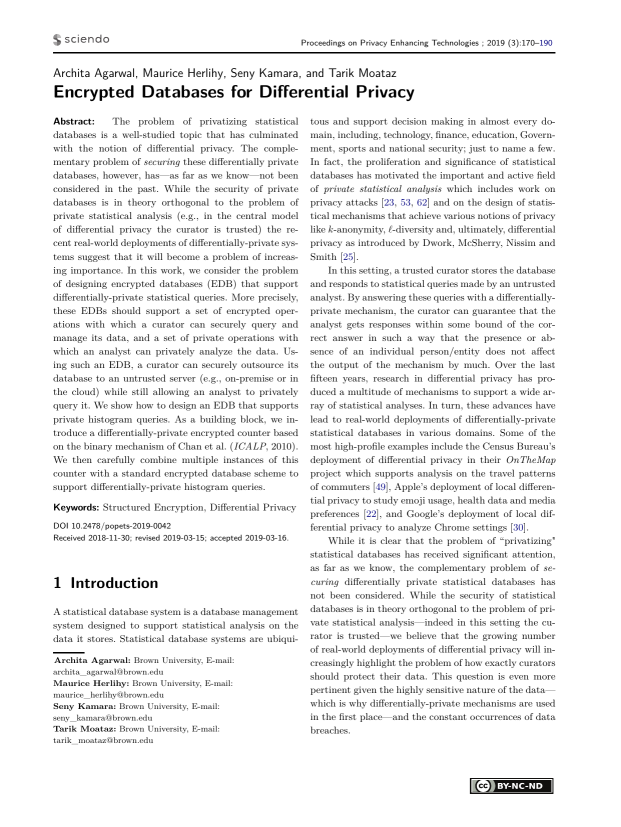Encrypted Databases for Differential Privacy
Authors: Archita Agarwal (Brown University), Maurice Herlihy (Brown University), Seny Kamara (Brown University), Tarik Moataz (Brown University)
Volume: 2019
Issue: 3
Pages: 170–190
DOI: https://doi.org/10.2478/popets-2019-0042
Abstract: The problem of privatizing statistical databases is a well-studied topic that has culminated with the notion of differential privacy. The complementary problem of securing these differentially private databases, however, has—as far as we know—not been considered in the past. While the security of private databases is in theory orthogonal to the problem of private statistical analysis (e.g., in the central model of differential privacy the curator is trusted) the recent real-world deployments of differentially-private systems suggest that it will become a problem of increasing importance. In this work, we consider the problem of designing encrypted databases (EDB) that support differentially-private statistical queries. More precisely, these EDBs should support a set of encrypted operations with which a curator can securely query and manage its data, and a set of private operations with which an analyst can privately analyze the data. Using such an EDB, a curator can securely outsource its database to an untrusted server (e.g., on-premise or in the cloud) while still allowing an analyst to privately query it. We show how to design an EDB that supports private histogram queries. As a building block, we introduce a differentially-private encrypted counter based on the binary mechanism of Chan et al. (ICALP, 2010). We then carefully combine multiple instances of this counter with a standard encrypted database scheme to support differentially-private histogram queries.
Keywords: Structured Encryption, Differential Privacy
Copyright in PoPETs articles are held by their authors. This article is published under a Creative Commons Attribution-NonCommercial-NoDerivs 3.0 license.

